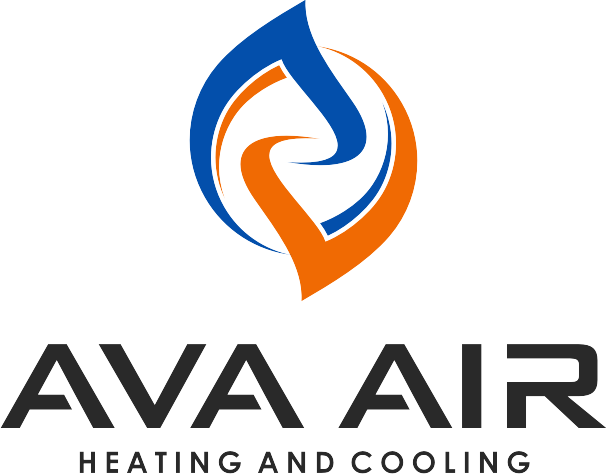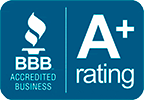
Seasonal Tips for Optimal HVAC Performance
Ask us about our service plans!
Efficient HVAC Year-Round
Your HVAC system works tirelessly to keep your home comfortable throughout the year, adapting to changing weather conditions with each passing season. Understanding how different weather patterns affect your HVAC system can help you take proactive measures to ensure optimal performance, efficiency, and longevity. In this blog post, we’ll explore the impact of various seasons on your HVAC system and provide practical tips to maintain its peak performance.



Understanding Your HVAC System
Your HVAC system is the heart of your home’s comfort, regulating temperature, airflow, and overall air quality. Comprising key components like the furnace, air conditioner, and ductwork, this system works in concert to maintain an ideal living environment, regardless of the season.
Improve Seasonal HVAC Performance
Spring: Preparing for the Transition
Spring is a season of transition, as temperatures begin to rise and the need for heating diminishes. This period is crucial for preparing your HVAC system for the upcoming summer months.
Spring HVAC Tips:
- Schedule a Professional Inspection: Before the heat of summer sets in, have a professional technician inspect your HVAC system. This ensures any issues are identified and resolved early.
- Clean or Replace Air Filters: Pollen and dust can accumulate in your HVAC system during the spring. Clean or replace air filters to ensure efficient airflow and reduce strain on your system.
- Inspect Ductwork: Leaks or blockages in your ductwork can hinder performance. Have your ducts inspected and sealed if necessary to ensure efficient air distribution.
- Test Thermostat Settings: Check your thermostat settings to ensure they are appropriate for the season. Consider upgrading to a programmable or smart thermostat for better energy management.
- Clear Outdoor Units: Remove any debris, leaves, or plants around your outdoor unit to ensure proper airflow and prevent overheating.
Summer: Coping with the Heat
Summer is when your HVAC system works the hardest, battling high temperatures to keep your home cool and comfortable. Proper maintenance during this season is critical to prevent breakdowns and maintain efficiency.
Summer HVAC Tips:
- Regular Maintenance: Schedule a mid-season checkup with a professional technician to ensure your system is running efficiently. This can prevent unexpected breakdowns during peak usage.
- Clean Air Filters Frequently: During the summer, your HVAC system runs more often, which means air filters can clog quickly. Clean or replace them monthly to maintain optimal airflow.
- Optimize Thermostat Settings: Set your thermostat to a higher temperature when you’re not home to reduce strain on your system. Using a programmable thermostat can help manage this automatically.
- Use Fans and Ventilation: Supplement your HVAC system with ceiling fans and natural ventilation. Fans help distribute cool air more evenly, reducing the load on your HVAC system.
- Check Refrigerant Levels: Low refrigerant levels can significantly affect cooling performance. Have a technician check and top off refrigerant levels if needed.
- Inspect and Clean Condenser Coils: Dirty condenser coils can reduce efficiency and cause your system to overheat. Clean the coils regularly to ensure optimal performance.
- Seal Windows and Doors: Prevent cool air from escaping by sealing any gaps around windows and doors. This helps maintain a consistent indoor temperature and reduces the workload on your HVAC system.
Fall: Preparing for Cooler Weather
As temperatures begin to drop, your HVAC system transitions from cooling to heating. Fall is an ideal time to prepare your system for the colder months ahead.
Fall HVAC Tips:
- Schedule a Heating System Checkup: Have a professional inspect your heating system, including the furnace and heat pump, to ensure everything is in working order.
- Clean or Replace Air Filters: Just like in the spring, fall is a good time to clean or replace air filters to ensure efficient airflow and indoor air quality.
- Inspect the Heat Exchanger: The heat exchanger should be checked for cracks or damage to prevent carbon monoxide leaks. This is a critical safety measure for your home.
- Check Thermostat Settings: Adjust your thermostat settings for the cooler months and consider setting a lower temperature when you’re not home to save energy.
- Clear Vents and Registers: Ensure that all vents and registers are unobstructed by furniture or drapes to allow for proper airflow and efficient heating.
Winter: Ensuring Reliable Heating
Winter brings the coldest temperatures of the year, and your HVAC system must work efficiently to keep your home warm. Proper maintenance during this season is essential for comfort and safety.
Winter HVAC Tips:
- Regular Maintenance: Schedule a winter checkup to ensure your heating system is operating efficiently and safely. This includes checking the furnace, heat pump, and any auxiliary heating units.
- Clean Air Filters Monthly: Heating systems can accumulate dust and debris quickly. Clean or replace air filters monthly to maintain good indoor air quality and system efficiency.
- Inspect and Insulate Ductwork: Ensure that your ductwork is properly insulated to prevent heat loss and improve efficiency. Seal any leaks to maintain consistent temperatures.
- Monitor Carbon Monoxide Levels: If you have a gas furnace, install a carbon monoxide detector to monitor levels in your home. Regularly check the detector’s batteries.
- Check Thermostat Settings: Keep your thermostat at a consistent temperature to avoid overworking your system. Lower the temperature at night or when you’re not home to save energy.
- Clear Snow and Ice: Keep outdoor units and vents clear of snow and ice to ensure proper airflow and prevent system damage.
Year-Round Maintenance Tips
While specific tips apply to different seasons, some maintenance practices are beneficial year-round:
- Regular Inspections: Schedule professional HVAC inspections at least twice a year, preferably in the spring and fall, to catch any issues early and ensure optimal performance.
- Maintain Clean Air Filters: Clean or replace air filters every 1-3 months, depending on usage and manufacturer recommendations. This helps maintain good indoor air quality and system efficiency.
- Monitor Energy Bills: Keep an eye on your energy bills. A sudden increase could indicate an issue with your HVAC system that needs attention.
- Keep Outdoor Units Clear: Regularly check and clear debris from around your outdoor units to ensure proper airflow and prevent damage.
- Upgrade When Necessary: If your HVAC system is old and inefficient, consider upgrading to a more energy-efficient model. Newer systems can provide better performance and lower energy costs
Understanding how weather affects your HVAC system is essential for maintaining optimal performance and efficiency throughout the year. By following these seasonal tips and investing in regular maintenance, you can ensure your system operates reliably, keeps your home comfortable, and minimizes energy costs. Proactive care not only extends the lifespan of your HVAC system but also provides peace of mind knowing that you are prepared for any weather conditions. Whether it’s the sweltering heat of summer or the icy chill of winter, your well-maintained HVAC system will keep you comfortable year-round.

